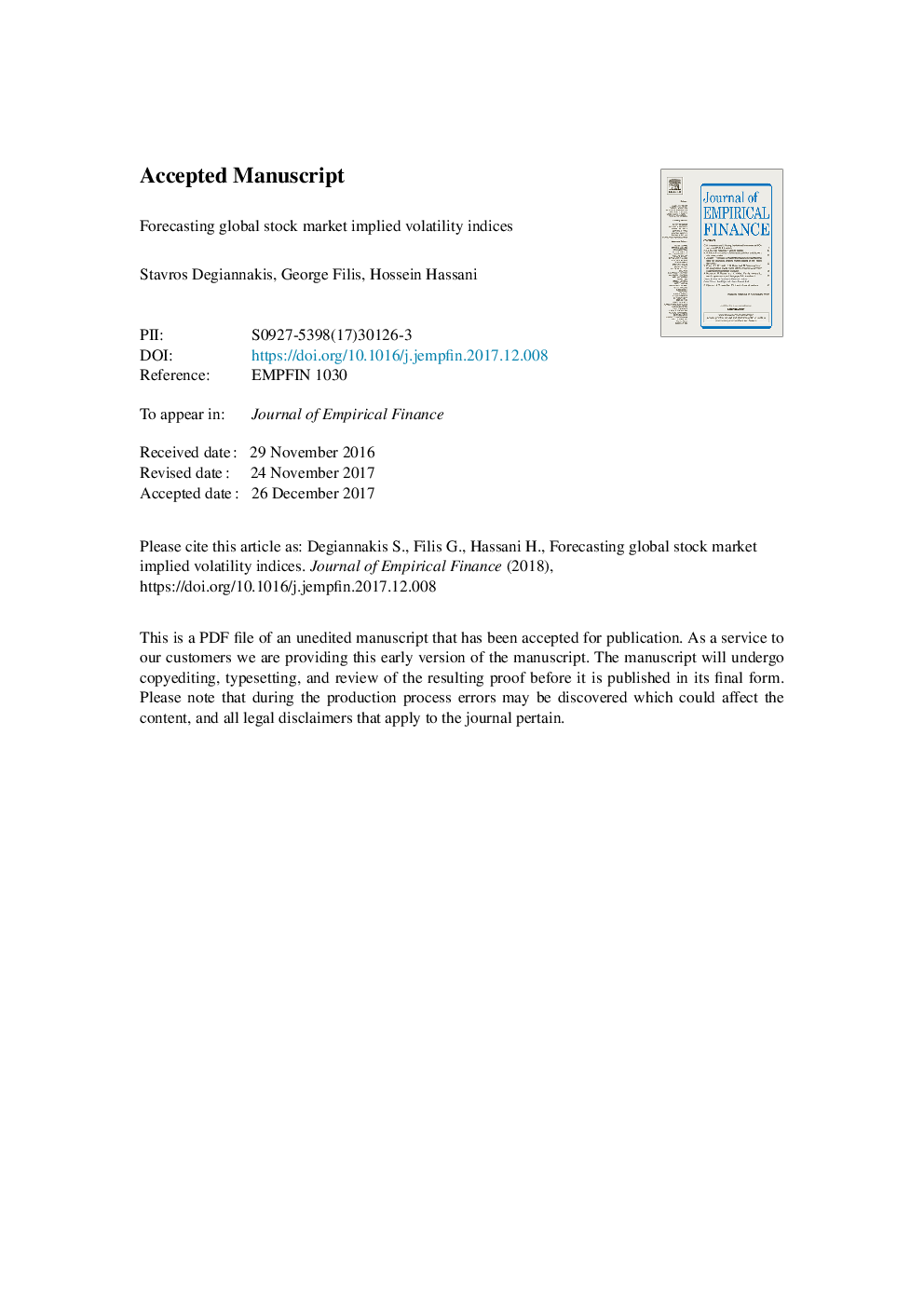| Article ID | Journal | Published Year | Pages | File Type |
|---|---|---|---|---|
| 7360578 | Journal of Empirical Finance | 2018 | 48 Pages |
Abstract
This study compares parametric and non-parametric techniques in terms of their forecasting power on implied volatility indices. We extend our comparisons using combined and model-averaging models. The forecasting models are applied on eight implied volatility indices of the most important stock market indices. We provide evidence that the non-parametric models of Singular Spectrum Analysis combined with Holt-Winters (SSA-HW) exhibit statistically superior predictive ability for the one and ten trading days ahead forecasting horizon. By contrast, the model-averaged forecasts based on both parametric (Autoregressive Integrated model) and non-parametric models (SSA-HW) are able to provide improved forecasts, particularly for the ten trading days ahead forecasting horizon. For robustness purposes, we build two trading strategies based on the aforementioned forecasts, which further confirm that the SSA-HW and the ARI-SSA-HW are able to generate significantly higher net daily returns in the out-of-sample period.
Keywords
Related Topics
Social Sciences and Humanities
Economics, Econometrics and Finance
Economics and Econometrics
Authors
Stavros Degiannakis, George Filis, Hossein Hassani,
